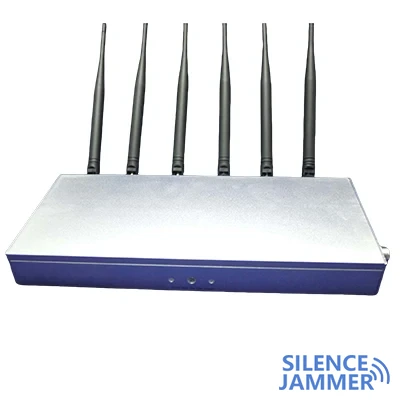Chilean President Gabriel Boric announced in November 2023 that Chile's national prison system will introduce a new mobile phone signal blocking plan, and emphasized that advanced technology will be used to block mobile phone signals in prisons, and it will be officially implemented in March 2024, which is expected to affect about 10,000 prisoners.
Scope of implementation of the new mobile phone blocker system
The new system was first implemented in three prisons in the Santiago area, including the Santiago South Preventive Detention Center, the Santiago No. 1 Preventive Detention Center, and the Special High Security Prison Facility. These facilities hold about 10,000 prisoners, accounting for 20% of the national prison population in Chile.

In addition, the Chilean government is preparing similar shielding measures for prisons in nine other regions, which will cover 50% of the national prison population.
Precise interference of the new cell phone jammer system
- Previous systems often blocked signals for the entire area, even affecting residents and gendarmerie officers outside the prison.
- Unlike previous signal jamming systems, the new system uses more precise technology that can identify and selectively block mobile devices within a specific radius.
- The new system establishes a clear perimeter that will not interfere with prison administrators or nearby residents.
Financial investment and challenges of the government
The Chilean government has invested huge financial resources in this. According to Deputy Minister of Justice Jaime Gajardo, the government has spent more than 3 billion pesos this year to implement the cell phone signal jammer system in the Pedro Monte region alone.
It is worth mentioning that there are 81 prison facilities in Chile. If the system is to be fully implemented in all prisons, it is estimated that one-third of the gendarmerie's operating budget, totaling about 600 billion pesos, will be required.
Due to such a huge cost, the government decided to prioritize the implementation of the system in 15 prison facilities, which is planned to be completed between 2024 and 2025.
Although the system currently only covers some prisons, the Chilean government plans to gradually expand it to other prisons across the country in the next few years. By gradually introducing this technology, the government hopes to eventually achieve full shielding of mobile phone signals in all high-risk facilities, thereby further improving prison security and curbing criminal activity within prisons.




